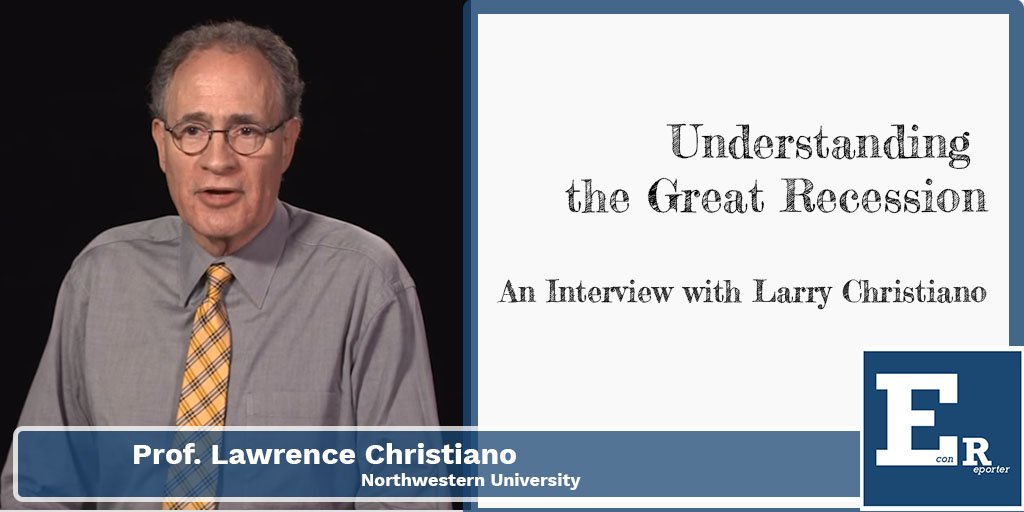Last Updated:
Welcome! This is the seventh installment of our interview series “Where is the General Theory of the 21st Century?”
“Where is the General Theory of the 21st Century?” is an interview series which we ask top economists a very important question: “Why haven’t economists come up with a new General Theory after the Great Recession?” We want to know how the macroeconomics academia has evolved since the Great Recession, and why the responses from macroeconomists since 2008 are different from their counterpart in the 1930s.
In this installment, we talked to Professor Ricardo Reis. He is the A.W. Phillips Professor of Economics at the London School of Economics. He is also affiliated with the CEPR and the ESRC Centre for Macroeconomics, and he is an academic advisor at the Bank of England and the FRB of Richmond.
In the interview, Reis will discuss with us his latest research project – “Reservism”, the study of the role of reserves on central bank balance sheets and their implications for central bank solvency, quantitative easing, and the ability to control inflation.
But in the first part of the interview, Reis first answered our questions on his view on the state of macroeconomics.
(The interview has been slightly edited for clarity, all errors are ours.)
Econreporter – Q / Ricardo Reis – R
Q: Do you think that after the Great Recession, macroeconomics has gone through an evolution that is comparable to Keynesian Revolution in the 1940s?
R: No. The short answer is no.
Yes, in my view the great recession has led to the awakening of a lot of very interesting research. In the last ten years, we have seen people are exploring new agendas in macroeconomics, asking different questions, using different methods. I think it has been a very exciting time to be a macroeconomist. Does the recession have an impact on the practices of macroeconomics and the research being done? The answer is very clearly a yes.
Though, your question is asking, “Has there been a revolution that has led people to completely abandon older ways of doing things and asking questions or the methods used?” Then I think the answer is no. I think what many macroeconomists found, perhaps rightly, perhaps wrongly, was that the old models that they use had captured a lot of truth. The recession had not rejected some of their main predictions, though they obviously needed to modify it. There were new questions, new data. So, it was not like a revolution in that sense.
Importantly, you have to remember that in the 1970s one of the many reasons why there was the so-called neo-classical revolution, or in the 1930s when there was the so-called Keynesian Revolution, are not just that there were big shocks to the economy that motivated new questions, that exposed faults in the existing models and things that had to be to do again. But “revolutions” came also when there was a deep dissatisfaction among many economists about the prevailing paradigm. Again, rightly or wrongly, many macroeconomists don’t seem to feel that in any way like the Great Recession had shown that there was a big crisis. As a result, there wasn’t a complete abandonment of old models.
One may think this is a bad thing, but my answer to you was a complete descriptive, not what I think should and shouldn’t have done.
Q: This is what I planned to ask about next. What do you think about the trend that, since the Great Recession, many macroeconomists tried to revitalize several old theories? Do you think this is a useful way to improve macroeconomics?
R: The progress of economics as a science is always one of continuously accumulating knowledge and, sometimes, of rediscovering old ideas in some new, interesting and exciting ways. That certainly happened in the last ten years. But I do not think, again this is my observations but not my desires, the last ten years has been characterized by a particular boom in the rediscovery of old ideas.
When we look back at the financial crisis, the main question is why economists did not predict what has happened in 2007 to Bear Sterns and Lehman Brothers. Economists felt that they have a bunch of apparatus that allow us to understand what was going on. So it was a failure of forecasting but not a failure of understanding.
It didn’t take very long for economists to understand that their models of bank runs, asymmetric information models and the importance of the financial sector could be used to understand what was going on. It is not the case that back at the 2007 economists felt, “Wow! Something happened and we don’t even know how to think about it!”
No, we had all sorts of ways to think about it. We may not have forecast it but we have some tools. What you have seen is that as we have the tools, there were attempts using them, attempts in understanding in what ways those tools were lacking, and attempts in improving those tools and understand them better. But there was not a feeling that we do not even have the tools to even understand what was going on.
Q: Do you think that macroeconomics before 2007 had provided good enough tools for us to combat the Great Recession?
R: No, I wouldn’t go that far. I would say that as a practicing researcher, a very active researcher who likes to think, I am very unhappy with the state of macroeconomics every day because this is part of my job to figure out where the models aren’t working and try to see how can I make them better. That’s what researchers do. So, you are asking someone who is perpetually thinking macroeconomics is not doing well. I would never say: “I think our models are doing a great job!” After all, my day job is to try to improve those models.
Having said that, I think when it comes to the policy reaction, as many have noted, the reactions of the Federal Reserve and the Bank of England to the crisis has been based on the historical lesson of the Great Depression, based on old and new models, and certainly based on the body of work called macroeconomics. They did seem to prevent the Great Recession becoming a new Great Depression. One could look at the policy responses, at least in terms of monetary policy and some of the fiscal policies responses during the recession, as are a great triumph of macroeconomics.
Counterfactual are hard to assess. I can’t say for sure whether policies are the reason why we had a recession but not a depression. But it is the case certainly that those macro policies that were used were very much influenced by academic developments in economics in the last 80 years. Even though it was a bad recession, it was very far from what the depression had been 70 years before.
Do I think there were many mistakes in the policies? Absolutely. Were there many policies that implemented which we don’t even have the right theory to understand them? Absolutely. But again, I don’t there was an overwhelming sense of failure.
Q So if we consider the future, are you also half-pessimistic and half optimistic about the usefulness of macroeconomics?
R: Let go to a slightly different debate, which is to what extent the economists have not done a good enough job forecasting possible economic shock and responding with a policy? I think it is important to keep perspective in mind. People may not have the sense of the relative dimension we are talking about.
Economics is a field that has at best 200 years of systematic study. More likely we have less than a 100 year of actual systematic and sustained study. The budget for research in the US, or even in the UK, that goes to economics maybe just 1/1000 of the pounds or dollars that are invested in infectious diseases.
Given the incredibly small amount of resources that we invested in economics, given the fact that economics have been studied for only 200 years where in medicine we have been studying infectious diseases in a systematic way for 2000 plus years, I think it is quite remarkable that economics models do such a good forecasting job when compared to infectious diseases models.
We do not think that medicine is in a crisis whenever a new virus appears, even if that virus turns out to be quite deadly. Again, they have a budget that is a thousand time bigger than ours. They have hundreds of more people working on it. They have been doing ten times more years than we have in economics. If you think about that in this perspective, I actually think the performance of economics, compares to other fields of knowledge, is actually not bad at all.
Part II of the interview, which Reis will discuss his research on how to use interest on reserves as a monetary policy tool is here:
EconReporter is an independent journalism project striving to provide top-notch coverage on everything related to economics and the global economy.
💡 Follow us on Bluesky and Substack for our latest updates.💡












